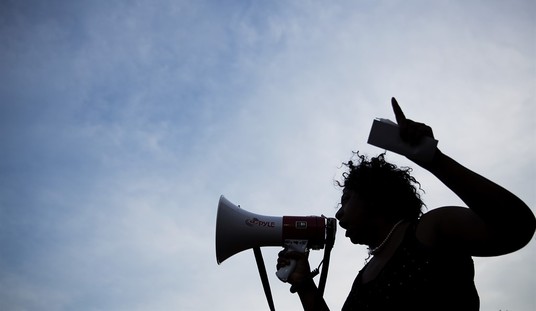I’m going to go ahead and ‘fess up that my knowledge of government “black sites” is limited to espionage novels and loose talk among some of my more radical, conspiracy-oriented associates.
Yeah. I’ve got a few of those.
What I gather is that they did exist, and for whatever purpose they served, they’re not regarded as particularly good things, now.
So whether this is random hysteria or something very real, it’s worth examining.
Late this month, The New York Times reported that President Trump is preparing to sign an executive order calling for review — and, most likely, reinstatement of — secret overseas prisons for the detention and interrogation of individuals captured in operations against al Qaeda, the Taliban, the Islamic State in Iraq and Syria (ISIS) and any other radical Islamist terrorist groups or those who assist, support or harbor such groups or individuals.
The order’s precise genesis is unclear at this point. The Washington Post published a draft of the order, prompting White House Press Secretary Sean Spicer to deny it as a White House document, explaining that the author is “somebody who worked on the transition before who is not in the Trump administration. This is not a product of the administration.”
Wow.
Ok, so somebody who is attached to the Trump administration on some level, or was, has put this out to the public.
One thing we do know is that Trump has said he thinks torture works. He has, however, suggested that he would ultimately allow for the secretary of Defense and the director of the CIA to have the final say in the matter.
That’s a relief.
Discuss amongst yourselves the validity of information culled from “torture” sessions.
From the New York Times:
The draft order does not direct any immediate reopening of C.I.A. prisons or revival of torture tactics, which are now banned by statute. But it sets up high-level policy reviews to make further recommendations in both areas to Mr. Trump, who vowed during the campaign to bring back waterboarding and a “hell of a lot worse” — not only because “torture works,” but because even “if it doesn’t work, they deserve it anyway.”
Specifically, the draft order would revoke two executive orders about detainees that Mr. Obama issued in January 2009, shortly after his inauguration. One was Mr. Obama’s directive to close the Guantánamo prison and the other was his directive to end C.I.A. prisons, grant Red Cross access to all detainees and limit interrogators to the Army Field Manual techniques.
In their place, Mr. Trump’s draft order would resurrect a 2007 executive order issued by President Bush. It responded to a 2006 Supreme Court ruling about the Geneva Conventions that had put C.I.A. interrogators at risk of prosecution for war crimes, leading to a temporary halt of the agency’s “enhanced” interrogations program.
Mr. Bush’s 2007 order enabled the agency to resume a form of the program by specifically listing what sorts of prisoner abuses counted as war crimes. That made it safe for interrogators to use other tactics, like extended sleep deprivation, that were not on the list. Mr. Obama revoked that order as part of his 2009 overhaul of detention legal policy.
The proposed executive order on these sites supposedly calls for a review of any interrogation techniques, in order to determine if “more aggressive” techniques should be used.
International and U.S. laws prohibit aggressive measures for extracting information.
These protections are not just overly generous protections for “the worst of the worst,” as our enemies in these conflicts with terrorist groups are often called. As our military leaders emphasize repeatedly, the Geneva Conventions and other fundamental norms of the law of war — including access for the Red Cross and the prohibitions on torture and cruel, inhuman or degrading treatment, arbitrary detention, and disappearances — protect members of our military when engaged in combat or other operations overseas.
Simply put, our soldiers, sailors, airmen and Marines receive better treatment at the hands of others when the U.S. steadfastly adheres to the key principles of international and domestic law.
What would be the ultimate result of reinstituting “black sites”?
The fear is that U.S. counterterrorism operations would be hobbled by a government that moved to keep their operations secret.
These are the real cloak-and-dagger types of operations that make for great cinema, but likely would not serve our nation well, otherwise.
And this is where I remind everybody that we don’t know how close to making this happen the administration may be, if at all.














Join the conversation as a VIP Member